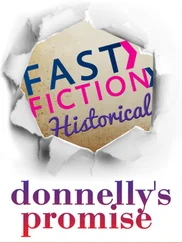Ignatius Donnelly - Antediluvian world
Здесь есть возможность читать онлайн «Ignatius Donnelly - Antediluvian world» весь текст электронной книги совершенно бесплатно (целиком полную версию без сокращений). В некоторых случаях можно слушать аудио, скачать через торрент в формате fb2 и присутствует краткое содержание. Жанр: Старинная литература, на русском языке. Описание произведения, (предисловие) а так же отзывы посетителей доступны на портале библиотеки ЛибКат.
- Название:Antediluvian world
- Автор:
- Жанр:
- Год:неизвестен
- ISBN:нет данных
- Рейтинг книги:5 / 5. Голосов: 1
-
Избранное:Добавить в избранное
- Отзывы:
-
Ваша оценка:
- 100
- 1
- 2
- 3
- 4
- 5
Antediluvian world: краткое содержание, описание и аннотация
Предлагаем к чтению аннотацию, описание, краткое содержание или предисловие (зависит от того, что написал сам автор книги «Antediluvian world»). Если вы не нашли необходимую информацию о книге — напишите в комментариях, мы постараемся отыскать её.
Antediluvian world — читать онлайн бесплатно полную книгу (весь текст) целиком
Ниже представлен текст книги, разбитый по страницам. Система сохранения места последней прочитанной страницы, позволяет с удобством читать онлайн бесплатно книгу «Antediluvian world», без необходимости каждый раз заново искать на чём Вы остановились. Поставьте закладку, и сможете в любой момент перейти на страницу, на которой закончили чтение.
Интервал:
Закладка:
The fact that this tradition existed among the inhabitants of America is proven by the existence of festivals, “especially one in the month Izcalli, which were instituted to commemorate this frightful destruction of land and people, and in which, say the sacred books, ‘princes and people humbled themselves before the divinity, and besought him to withhold a return of such terrible calamities.’”
Can we doubt the reality of events which we thus find confirmed by religious ceremonies at Athens, in Syria, and on the shores of Central America?
And we find this succession of great destructions of the Atlantic continent in the triads of Wales, where traditions are preserved of “three terrible catastrophes.” We are told by the explorations of the ship Challenger that the higher lands reach in the direction of the British Islands; and the Celts had traditions that a part of their country once extended far out into the Atlantic, and was subsequently destroyed.
And the same succession of destructions is referred to in the Greek legends, where a deluge of Ogyges—”the most ancient of the kings of Boeotia or Attica, a quite mythical person, lost in the night of ages”—preceded that of Deucalion.
We will find hereafter the most ancient hymns of the Aryans praying God to hold the land firm. The people of Atlantis, having seen their country thus destroyed, section by section, and judging that their own time must inevitably come, must have lived under a great and perpetual terror, which will go far to explain the origin of primeval religion, and the hold which it took upon the minds of men; and this condition of things may furnish us a solution of the legends which have come down to us of their efforts to perpetuate their learning on pillars, and also an explanation of that other legend of the Tower of Babel, which, as I will show hereafter, was common to both continents, and in which they sought to build a tower high enough to escape the Deluge.
All the legends of the preservation of a record prove that the united voice of antiquity taught that the antediluvians had advanced so far in civilization as to possess an alphabet and a system of writing; a conclusion which, as we will see hereafter, finds confirmation in the original identity of the alphabetical signs used in the old world and the new.
PART III
THE CIVILIZATION OF THE OLD WORLD AND NEW COMPARED.
CHAPTER I.
CIVILIZATION AN INHERITANCE.
Material civilization might be defined to be the result of a series of inventions and discoveries, whereby man improves his condition, and controls the forces of nature for his own advantage.
The savage man is a pitiable creature; as Menabosbu says, in the Chippeway legends, he is pursued by a “perpetual hunger;” he is exposed unprotected to the blasts of winter and the heats of summer. A great terror sits upon his soul; for every manifestation of nature—the storm, the wind, the thunder, the lightning, the cold, the heat—all are threatening and dangerous demons. The seasons bring him neither seed-time nor harvest; pinched with hunger, appeasing in part the everlasting craving of his stomach with seeds, berries, and creeping things, he sees the animals of the forest dash by him, and he has no means to arrest their flight. He is powerless and miserable in the midst of plenty. Every step toward civilization is a step of conquest over nature. The invention of the bow and arrow was, in its time, a far greater stride forward for the human race than the steam-engine or the telegraph. The savage could now reach his game—his insatiable hunger could be satisfied; the very eagle, “towering in its pride of place,”
was not beyond the reach of this new and wonderful weapon. The discovery of fire and the art of cooking was another immense step forward. The savage, having nothing but wooden vessels in which to cook, covered the wood with clay; the day hardened in the fire. The savage gradually learned that he could dispense with the wood, and thus pottery was invented. Then some one (if we are to believe the Chippeway legends, on the shores of Lake Superior) found fragments of the pure copper of that region, beat them into shape, and the art of metallurgy was begun; iron was first worked in the same way by shaping meteoric iron into spear-heads.
But it must not be supposed that these inventions followed one another in rapid succession. Thousands, and perhaps tens of thousands, of years intervened between each step; many savage races have not to this day achieved some of these steps. Prof. Richard Owen says, “Unprepossessed and sober experience teaches that arts, language, literature are of slow growth, the results of gradual development.”
I shall undertake to show hereafter that nearly all the arts essential to civilization which we possess date back to the time of Atlantis—certainly to that ancient Egyptian civilization which was coeval with, and an outgrowth from, Atlantis.
In six thousand years the world made no advance on the civilization which it received from Atlantis.
Phoenicia, Egypt, Chaldea, India, Greece, and Rome passed the torch of civilization from one to the other; but in all that lapse of time they added nothing to the arts which existed at the earliest period of Egyptian history. In architecture, sculpture, painting, engraving, mining, metallurgy, navigation, pottery, glass-ware, the construction of canals, roads, and aqueducts, the arts of Phoenicia and Egypt extended, without material change or improvement, to a period but two or three hundred years ago. The present age has entered upon a new era; it has added a series of wonderful inventions to the Atlantean list; it has subjugated steam and electricity to the uses of man. And its work has but commenced: it will continue until it lifts man to a plane as much higher than the present as the present is above the barbaric condition; and in the future it will be said that between the birth of civilization in Atlantis and the new civilization there stretches a period of many thousands of years, during which mankind did not invent, but simply perpetuated.
Herodotus tells us (“Euterpe,” cxlii.) that, according to the information he received from the Egyptian priests, their written history dated back 11,340 years before his era, or nearly 14,000 years prior to this time. They introduced him into a spacious temple, and showed him the statues of 341 high-priests who had in turn succeeded each other; and yet the age of Columbus possessed no arts, except that of printing (which was ancient in China), which was not known to the Egyptians; and the civilization of Egypt at its first appearance was of a higher order than at any subsequent period of its history, thus testifying that it drew its greatness from a fountain higher than itself. It was in its early days that Egypt worshipped one only God; in the later ages this simple and sublime belief was buried under the corruptions of polytheism. The greatest pyramids were built by the Fourth Dynasty, and so universal was education at that time among the people that the stones with which they were built retain to this day the writing of the workmen. The first king was Menes.
“At the epoch of Menes,” says Winchell, “the Egyptians were already a civilized and numerous people. Manetho tells us that Athotis, the son of this first king, Menes, built the palace at Memphis; that he was a physician, and left anatomical books. All these statements imply that even at this early period the Egyptians were in a high state of civilization.” (Winchell’s “Preadamites,” p. 120.) “In the time of Menes the Egyptians had long been architects, sculptors, painters, mythologists, and theologians.” Professor Richard Owen says, “Egypt is recorded to have been a civilized and governed community before the time of Menes. The pastoral community of a group of nomad families, as portrayed in the Pentateuch, may be admitted as an early step in civilization. But how far in advance of this stage is a nation administered by a kingly government, consisting of grades of society, with divisions of labor, of which one kind, assigned to the priesthood, was to record or chronicle the names and dynasties of the kings, the duration and chief events of their reigns!” Ernest Renan points out that “Egypt at the beginning appears mature, old, and entirely without mythical and heroic ages, as if the country had never known youth. Its civilization has no infancy, and its art no archaic period. The civilization of the Old Monarchy did not begin with infancy. It was already mature.”
Читать дальшеИнтервал:
Закладка:
Похожие книги на «Antediluvian world»
Представляем Вашему вниманию похожие книги на «Antediluvian world» списком для выбора. Мы отобрали схожую по названию и смыслу литературу в надежде предоставить читателям больше вариантов отыскать новые, интересные, ещё непрочитанные произведения.
Обсуждение, отзывы о книге «Antediluvian world» и просто собственные мнения читателей. Оставьте ваши комментарии, напишите, что Вы думаете о произведении, его смысле или главных героях. Укажите что конкретно понравилось, а что нет, и почему Вы так считаете.












